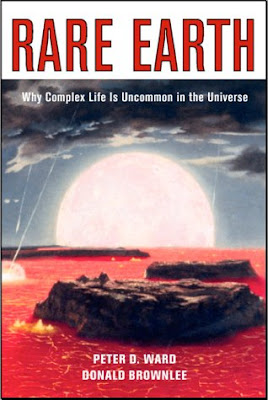Astrobiologia Computacional

Numerical Testing of The Rare Earth Hypothesis using Monte Carlo Realisation Techniques
(Submitted on 11 Jan 2010)
The Search for Extraterrestrial Intelligence (SETI) has thus far failed to provide a convincing detection of intelligent life. In the wake of this null signal, many "contact pessimistic" hypotheses have been formulated, the most famous of which is the Rare Earth Hypothesis. It postulates that although terrestrial planets may be common, the exact environmental conditions that Earth enjoys are rare, perhaps unique. As a result, simple microbial life may be common, but complex metazoans (and hence intelligence) will be rare. This paper uses Monte Carlo Realisation Techniques to investigate the Rare Earth Hypothesis, in particular the environmental criteria considered imperative to the existence of intelligence on Earth.
By comparing with a less restrictive, more optimistic hypothesis, the data indicates that if the Rare Earth hypothesis is correct, intelligent civilisation will indeed be relatively rare. Studying the separations of pairs of civilisations shows that most intelligent civilisation pairs (ICPs) are unconnected: that is, they will not be able to exchange signals at lightspeed in the limited time that both are extant. However, the few ICPs that are connected are strongly connected, being able to participate in numerous exchanges of signals. This may provide encouragement for SETI researchers: although the Rare Earth Hypothesis is in general a contact-pessimistic hypothesis, it may be a "soft" or "exclusive" hypothesis, i.e. it may contain facets that are latently contact-optimistic.
Comentários